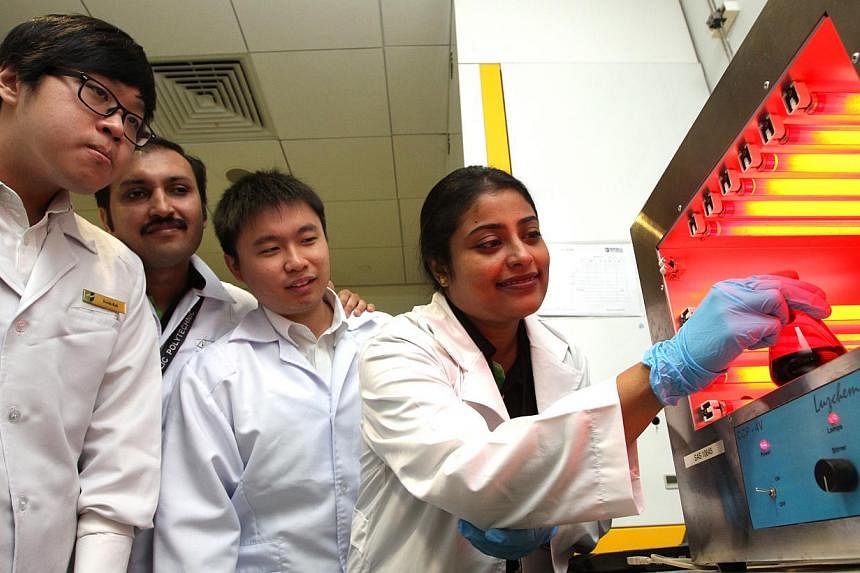A team of Singapore researchers from Republic Polytechnic has come up with a chemical compound that could make a skin cancer treatment cheaper, but just as effective.
A non-invasive technique called photodynamic therapy (PDT) involves injecting light- sensitive drugs into a tumour, then bathing it with a beam of light to activate the drugs inside.
As light can penetrate only surface tissues, PDT is more effective at treating tumours on or just under the skin or on the lining of internal organs and cavities. Light can be delivered only to the diseased area, leaving healthy tissues unaffected.
It is a less toxic alternative to chemotherapy, which kills all rapidly multiplying cells - not just tumour cells.
The new compound, if successfully tested, could create a new class of PDT drugs that will be easier to synthesise and also involve less manpower, thus lowering costs for the consumer.
This new class of compounds has received a patent from the Intellectual Property Office of Singapore and is pending approval from international patent offices.
PDT treatment costs vary, depending on the depth of the tumour. It can also treat head, neck, throat and stomach cancers.
While the therapy has been in use for more than 20 years, there has been only one class of drugs used with it, said staff researcher Susmita Ban.
"This new compound can be made in just two steps, with a high yield of 80 per cent. It has promising potential as a cheaper and equally effective drug."
The team of five students and three staff has concluded its first stage of research, which proved the compound's effectiveness at selectively killing cancer cells.
Research has been going on for four years at Republic Poly and Dr Susmita said it will take five to seven more years before it can be marketed.
PDT is now normally offered as an alternative to patients who are not able to go through further radiotherapy and those who do not respond well to chemotherapy.

